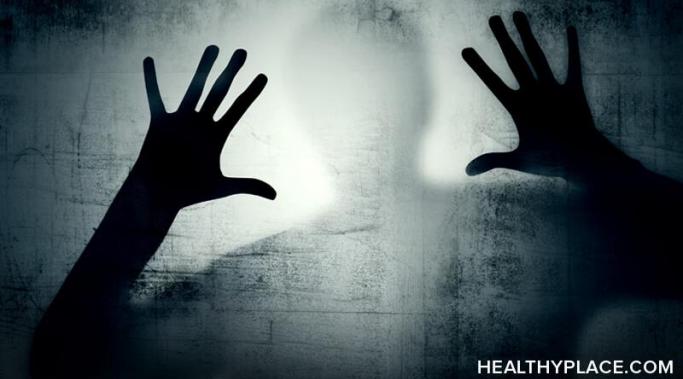Blogs
Seasonal depression is a hot topic during this time of year, and seasonal depression and stigma rear their ugly head simultaneously. It wasn't until recently that I could put a name to all the unpleasant and lonely emotions that I felt as the days became shorter and the weather colder--I guess I can thank mainstream media for that. The fact of the matter is that many individuals experience varying degrees of seasonal depression. So why do people still attempt to debunk the phenomenon and call seasonal affective disorder fake? Stigma around seasonal depression, that's why.
As I work through my healing journey, I've noticed some specific triggering elements that leave me feeling uncomfortable. Even as a young child growing up, I remember the emotions of mistrust and suspicion when trying to determine if someone's words and actions were genuine. My trust issues from child abuse made it almost impossible to tell the difference between a lie and a joke.
Symptoms of dissociation can be terrifying. One night, I had horrific acute, prolonged panic symptoms, and in an out-of-body utter state of confusion, I looked at my husband and asked, "Are you going to have me committed?"
I have bipolar disorder, and I never ghost people. "Ghosting" is a slang term for when someone cuts off all communication. Some people may doubt that I don't ghost people based on my bipolar diagnosis; however, believe me, I am not a "ghoster." Moreover, I'm not the only one. Just because a person has bipolar doesn't mean they will ghost you.
Each year, as the calendar flips to November, I'm hit with a reminder of how complex the holiday season feels in eating disorder recovery. Of course, that's not unique to those with a history of eating disorders. This time of year can be overwhelming for anyone. In 2021, three out of five surveyed Americans felt their mental health worsen over the holidays, with 60 percent noticing a rise in anxiety and 52 percent noticing a rise in depression. Now couple all that with eating disorder stressors or behaviors, and this hectic season can become even more fraught. So with the 2022 festivities just around the corner, let's acknowledge it: The holidays are complex in eating disorder recovery—and that is alright.
Everybody can feel overwhelmed from time to time. Whether problems are work- or home-related or of matters entirely unrelated, modern living can tax us physically and emotionally. And, while feelings of overwhelm aren't the sole preserve of people with attention-deficit/hyperactivity disorder (ADHD), emotional dysregulation can act as an antagonist for me--especially when it comes to dealing with modern challenges. In other words, ADHD can add to my feeling overwhelmed.
We are right on the verge of Thanksgiving and the holiday season. It's such a great time to reflect, not only on the year overall but also on how my ability to cope with my anxiety has progressed. A helpful strategy that I've really taken the time to focus on this year has been practicing gratitude and how feeling thankful has helped me manage my anxiety levels.
In August 2021, after watching my performance deteriorate for months, I decided to quit my full-time government job to deal with burnout and take care of my mental health. Living alone in a basement apartment during the pandemic had made my depression and anxiety worse, and I'd been finding my job increasingly stressful. Leaving without another job lined up was risky, but I felt I had no choice. I'd reached my limit.
This isn't one of those stock Thanksgiving blogicles where I waste 500 words tossing around washed-up phrases about how "gratitude is an attitude." It's much worse than that. I'm going to try to challenge your notion of gratitude altogether. I said early on in my HealthyPlace journey that I wasn't going to try to convince anyone of anything, but we all knew I was lying. So let me be explicit about this: I want you to leave this post believing that gratitude isn't just for the things in your life that are working. I want you to walk away feeling grateful for the challenges in your life that aren't.
Getting clean from self-harm isn't easy, and when you're in a dark place, just trying to get better can seem like too much effort for too unlikely a reward. But the work to recover from self-harm is worthwhile—I promise.









